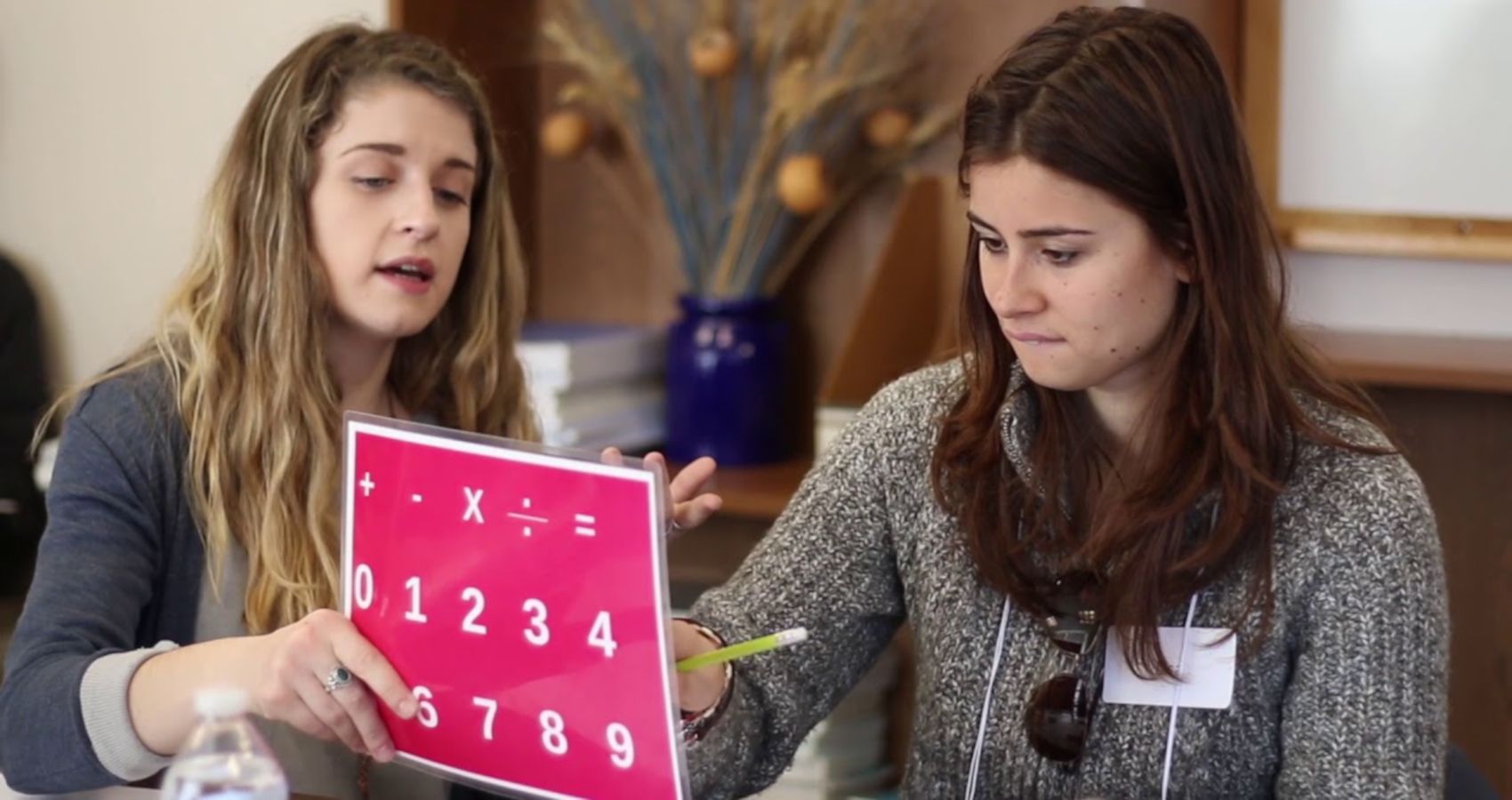According to the CDC, approximately 1 in 68 children in the United States currently fall somewhere on the autism spectrum. For a high number of those children with autism, verbal communication proves to be a challenging, sometimes impossible task. According to Dr. Connie Kasari, a professor in UCLA’s Center for Autism Research, “Your mouth is like a limb. Your oral system is like an appendage. If you’re not very coordinated, it’s going to affect how well you can produce movement, speech being one of those movements.”
In fact, approximately one-third of the autism community remaining nonverbal throughout their lifetime. That's why the need for alternative communication therapies is so important, and Elizabeth Vosseller thinks she has the answers at her Virginia-based therapy center, Growing Kids Therapy Center.
Vosseller, who also serves as acting Secretary for The Nonspeaking Community Consortium, is the executive director and founder of Growing Kids Therapy Center. Although this center specializes in treating non-verbal members of the autism community, they use a non-traditional approach. More specifically, Growing Kids Therapy Center uses a unique methodology to help non-verbal people learn to communicate through movement.
As Vosseller shared in an interview, “If I were to lose my voice and go to full-blown laryngitis, I’m not losing my ability to comprehend, I’m losing my ability to articulate.” In other words, these children fully comprehend the conversations going on around them, they just can’t respond through talking.
Through Growing Kids Therapy Center’s approach, though, children learn to synchronize their brain and their body in a new way so that they can effectively communicate in their own way. The center uses a combination of speech-language pathology, occupational therapy, and educational principles to help children develop the purposeful motor skills required to communicate through spelling.
In other words, Vosseller’s center gives non-verbal children with autism a voice.
Through the center’s approach, trained specialists (called “communication partners”) teach children motor skills using a hierarchy of verbal cues and gestural prompts. As a child’s motor skills improve, they progress from spelling out words by pointing on letter boards to fully communicating through keyboard typing.
Vosseller began implementing low and high-tech Augmentative and Alternative Communication to teach kids the skills needed to implement her “spell-to-communicate” method back in 2013, and from there the program has only grown. In addition to running the day-to-day aspects of the center, Vosseller also hosts interns and provides her unique Accessing Community Through Spelling (ACTS) professional development program so that practitioners can utilize her concept across the country.
However, not all educational institutions currently support this speech-to-communicate method. The Autistic Self Advocacy Network started the process of fighting for increased accomodations for spell-talkers (students who use letter boards to communicate). Also, despite Growing Kids Therapy Center’s overwhelming successes with some students, physically spelling words doesn't work for all non-speaking people. After all, since autism is a spectrum disorder, there’s lots of heterogeneity.
“We have a growing body of researchers who are looking into this,” Vosseller shared in an interview. “It takes a while for someone to be interested in researching it."
With that being said, Vosseller firmly believes that her method will be the next big thing.
After all, movement therapy has experienced positive results for other types of disabilities and medical conditions. Studies have shown that dance therapy offers numerous benefits for children with Down syndrome, and movement activities provide a way to express feelings for people a number of health conditions. Furthermore, these experiences promote inclusivity and help children fit into a mainstream world that doesn't always adapt to their unique needs.
While Vosseller's clinic only supports the one location just outside of Washington DC in a highly urbanized part of Virginia, this fairly new approach to non-verbal autism could eventually spread throughout the country. The center currently offers outreach opportunities, online resources, and special training opportunities, but no secondary locations.
Regardless, Vosseller and her team hopes that their approach ultimately makes a lifelong positive impact on the autism community by giving everyone a voice, because communication is one of the most basic human functions.
If you'd like more information on Growing Kids Therapy Center and their groundbreaking approach to help non-verbal people with autism learn to communicate through spelling, visit https://growingkidstherapy.com/.
READ NEXT: Oscar The Grouch Teaches A Valuable Life Lesson For Kids

